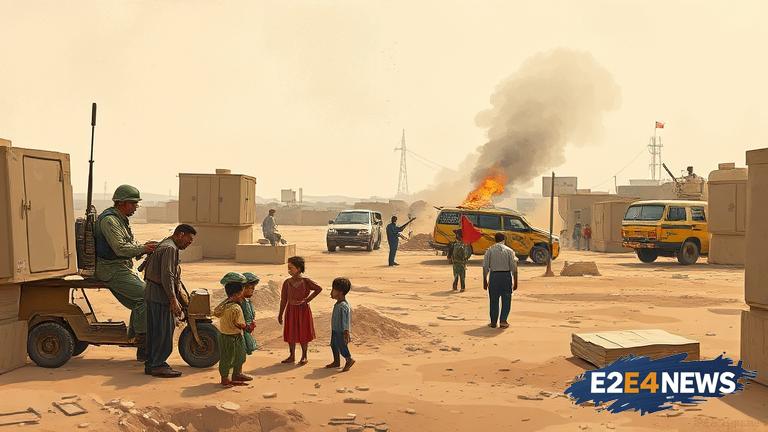The Israeli military has announced a pause in fighting in three areas of Gaza, namely Khan Younis, Rafah, and a part of the northern Gaza Strip, in an effort to alleviate the surging hunger crisis in the region. This decision comes as the conflict between Israel and Hamas continues to escalate, resulting in significant humanitarian concerns. The pause in fighting is intended to facilitate the delivery of food and other essential supplies to the affected areas. The Israeli military has stated that the pause will be in effect for a limited time, during which humanitarian aid will be allowed to enter the designated areas. The move is seen as a response to the growing international pressure to address the humanitarian crisis in Gaza. The United Nations and other international organizations have been warning of a catastrophic humanitarian situation in Gaza, with reports of widespread hunger, poverty, and displacement. The conflict has resulted in significant damage to infrastructure, including roads, bridges, and buildings, making it difficult for aid to reach the affected areas. The Israeli military has been carrying out airstrikes and ground operations in Gaza, targeting Hamas militants and infrastructure. However, the conflict has also resulted in significant civilian casualties, including women and children. The humanitarian pause is seen as a welcome move, but many are skeptical about its effectiveness in addressing the root causes of the crisis. The Palestinian Authority has welcomed the move, but has also called for a comprehensive ceasefire to address the humanitarian crisis. The international community has been calling for a peaceful resolution to the conflict, with many countries expressing concern about the humanitarian situation in Gaza. The United States, the European Union, and other countries have been providing humanitarian aid to Gaza, but the delivery of aid has been hindered by the ongoing conflict. The Israeli military has stated that it will continue to target Hamas militants and infrastructure, but will also work to minimize civilian casualties. The pause in fighting is seen as a positive step, but many are concerned about the long-term implications of the conflict. The humanitarian crisis in Gaza is a complex issue, with deep-rooted causes, including poverty, unemployment, and a lack of access to basic services. The conflict has also resulted in significant psychological trauma, with many civilians experiencing anxiety, fear, and stress. The international community must work together to address the humanitarian crisis in Gaza, including providing aid, promoting a peaceful resolution to the conflict, and addressing the root causes of the crisis. The situation in Gaza is a reminder of the importance of promoting peace, stability, and humanitarian values in the region. The conflict has significant implications for the region, including the potential for further escalation and the impact on regional stability. The international community must work together to promote a peaceful resolution to the conflict and address the humanitarian crisis in Gaza. The pause in fighting is a welcome move, but it is only a first step towards addressing the humanitarian crisis in Gaza. The international community must continue to work together to promote peace, stability, and humanitarian values in the region.
